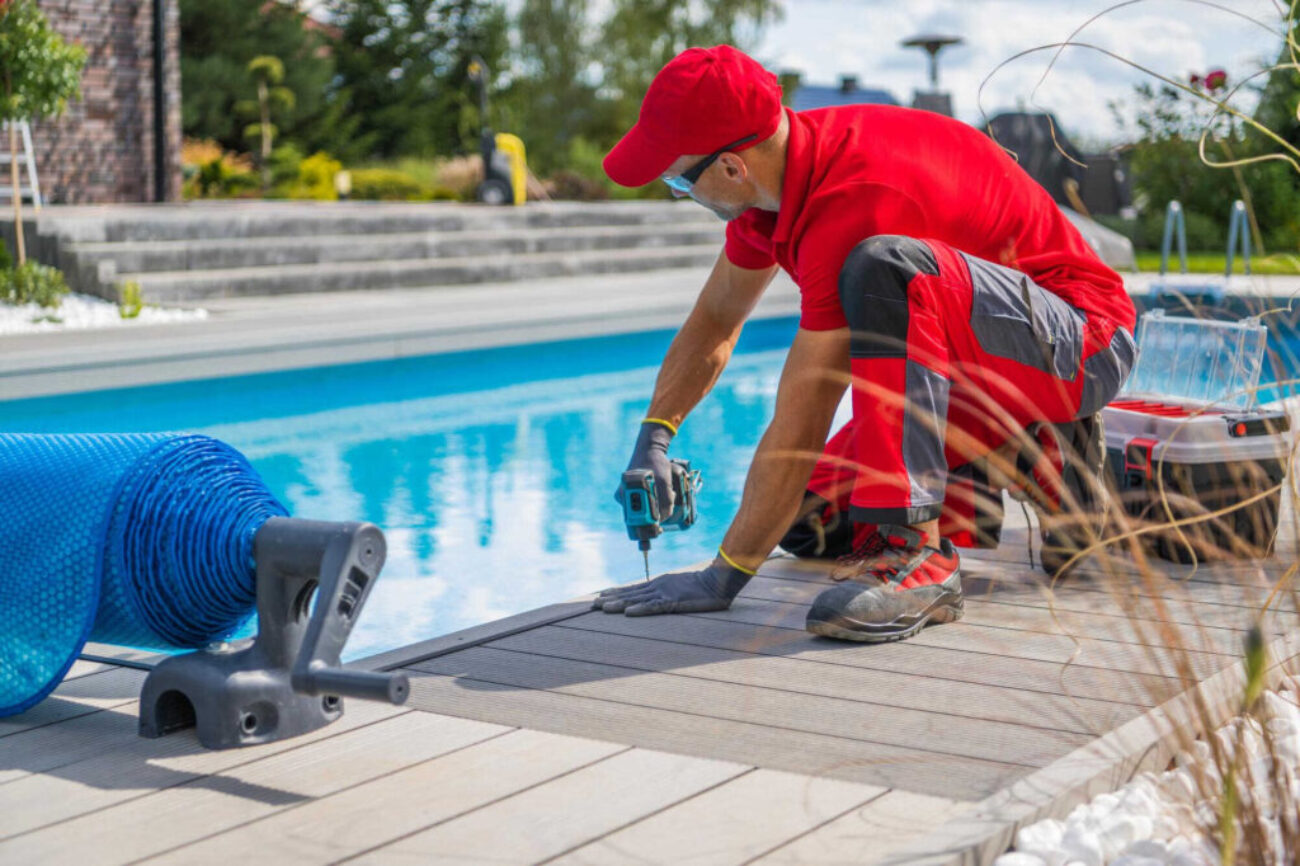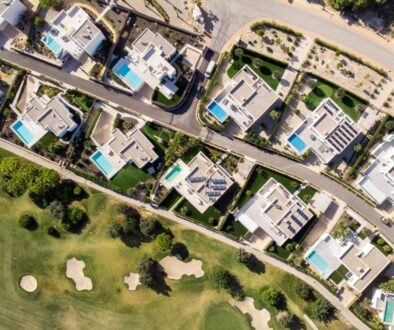Discover how energy-efficient pool equipment can significantly reduce expenses while maintaining your swimming pool’s charm and functionality. Dive into the world of savings!
The Role of Energy-Efficient Pool Equipment in Reducing Expenses
Energy-efficient pool equipment has become a cornerstone of modern pool management, offering not just environmental benefits but also substantial financial savings. As pool owners face rising energy costs, the importance of investing in equipment that minimizes energy consumption becomes increasingly clear. Throughout this blog post, we will explore the various types of energy-efficient equipment available, how they contribute to reducing expenses, and the long-term benefits of making the switch. Whether you are a new pool owner or looking to upgrade your existing setup, understanding the role of energy-efficient pool equipment is essential for maximizing your investment.
Understanding Energy-Efficient Pool Equipment
Energy-efficient pool equipment encompasses a variety of tools designed to use less energy while maintaining optimal performance. This includes energy-efficient pumps, heaters, and lighting, each of which plays a vital role in the overall operate costs of your pool. According to the U.S. Department of Energy, traditional pool pumps can consume up to 60% of a pool’s total energy use. In contrast, variable-speed pumps can reduce energy usage by 30% to 90% compared to single-speed models.
For instance, when upgrading to a variable-speed pump, pool owners can benefit from tailored water circulation tailored to specific needs, ultimately leading to lower energy bills. Furthermore, energy-efficient pool heaters, such as heat pumps and solar heaters, can also provide significant savings by relying on renewable resources or electricity more effectively. The initial investment may be higher, but the long-term savings on energy bills can make it a wise choice.
The Financial Impact of Energy-Efficient Equipment
Transitioning to energy-efficient pool equipment is not merely an environmental decision; it is a financially sound strategy. The initial investment in these advanced systems can lead to substantial savings in the long run. According to industry studies, switching to energy-efficient pool equipment can result in savings of $300 to $500 annually, depending on the pool size and local energy costs.
Moreover, many utility companies offer rebates and incentives for homeowners who invest in energy-efficient appliances, further reducing the upfront costs. For example, you can often find incentives for purchasing energy-efficient pool pumps and heaters, making them even more accessible to pool owners. By taking advantage of these programs, homeowners can enjoy immediate financial relief while contributing to a more sustainable future.
Enhancing Pool Maintenance with Energy Efficiency
Energy-efficient pool equipment does more than just save money; it also simplifies maintenance. Smart technology features in modern equipment allow for better monitoring and control of pool conditions, which can prevent costly repairs down the line. For example, many energy-efficient pumps and heaters come with built-in timers and automated systems that optimize their operation based on specific pool usage patterns. This not only leads to reduced energy consumption but also ensures that your pool remains clean and well-maintained.
Imagine a scenario where your pool equipment automatically adjusts its settings based on the time of day or the number of swimmers using the pool. This level of automation reduces the chances of human error and ensures that the pool operates efficiently at all times. Additionally, the use of energy-efficient LED lighting can enhance the nighttime ambiance of your pool area without significantly increasing your electricity bill.
Choosing the Right Energy-Efficient Equipment
When selecting energy-efficient pool equipment, it’s essential to consider factors such as your pool size, specific needs, and local energy costs. Pools in Florida and Texas, for instance, may require different types of equipment due to climate variations.
For homeowners in Florida, investing in solar pool heaters can be particularly advantageous given the state’s abundant sunshine. This type of heater harnesses solar energy, providing a sustainable and cost-effective heating solution that can extend your swimming season without inflating your energy bills. Additionally, energy-efficient pumps with variable speed capabilities are also recommended to optimize water circulation while minimizing energy consumption.
On the other hand, Texas pool owners can benefit from both heat pumps and energy-efficient gas heaters, depending on their specific heating preferences and usage patterns. Choosing the right equipment is crucial to maximizing energy savings while ensuring the pool remains functional and inviting year-round.
Practical Tips for Reducing Pool Expenses
To further enhance energy efficiency and reduce expenses, pool owners can adopt several best practices alongside upgrading their equipment. Regular maintenance, such as cleaning filters and checking for leaks, can significantly impact energy consumption. A dirty filter can cause the pump to work harder, increasing energy use.
Additionally, consider implementing a pool cover when the pool is not in use. A cover helps retain heat, reducing the need for heating and minimizing evaporation, which can lead to water and chemical savings. Investing in a high-quality cover not only protects the pool from debris but also serves as an energy-saving measure.
Finally, creating a schedule for regular equipment checks and maintenance can help identify potential issues before they escalate into costly repairs. Engaging a professional service to help with this task can be a wise investment, ensuring that your energy-efficient equipment remains in optimal condition.
Exploring Innovative Technologies in Pool Equipment
As technology continues to evolve, energy-efficient pool equipment has become increasingly sophisticated. Innovations such as smart pool systems allow pool owners to monitor and control their pool equipment remotely. This capability empowers owners to adjust settings as needed, ensuring that energy consumption is kept to a minimum.
For example, smart pumps can communicate with other devices and learn from their operation patterns, optimizing their performance based on your pool usage trends. This means that as your pool habits change throughout the year, your equipment adapts, leading to even greater energy savings.
In addition to smart technology, advancements in materials and design also contribute to energy efficiency. For instance, modern pool heaters are designed to have higher efficiency ratings, meaning they convert a greater percentage of energy into heat. Selecting equipment with high Energy Star ratings can further guarantee that you are making an investment in sustainability.
The Environmental Benefits of Energy-Efficient Pool Equipment
While the financial motivations for investing in energy-efficient pool equipment are significant, the environmental impact is equally important. Reducing energy consumption means lowering greenhouse gas emissions and contributing to a cleaner environment. By making the switch to energy-efficient equipment, pool owners are not only investing in their own savings but also participating in global efforts to combat climate change.
Furthermore, many energy-efficient products are designed with sustainability in mind, using materials that are more environmentally friendly and less harmful. This shift towards eco-friendly pool equipment aligns with broader trends in sustainable living, which prioritize conservation and responsible resource management.
Conclusion
In conclusion, energy-efficient pool equipment plays a crucial role in reducing expenses while enhancing the overall pool experience. By investing in variable-speed pumps, efficient heaters, and smart technologies, pool owners can enjoy significant financial savings and contribute positively to the environment. As energy costs continue to rise, the importance of making informed choices about pool equipment has never been more critical.
If you’re considering the transition to energy-efficient pool equipment, now is the perfect time to explore available options and discover how much you can save. With the right investment, you can enjoy a beautiful, well-maintained pool without the burden of soaring energy expenses. To learn more about available energy-efficient pool options and get expert insights, visit [Pool Routes for Sale](https://pool-routes-for-sale.com/).



